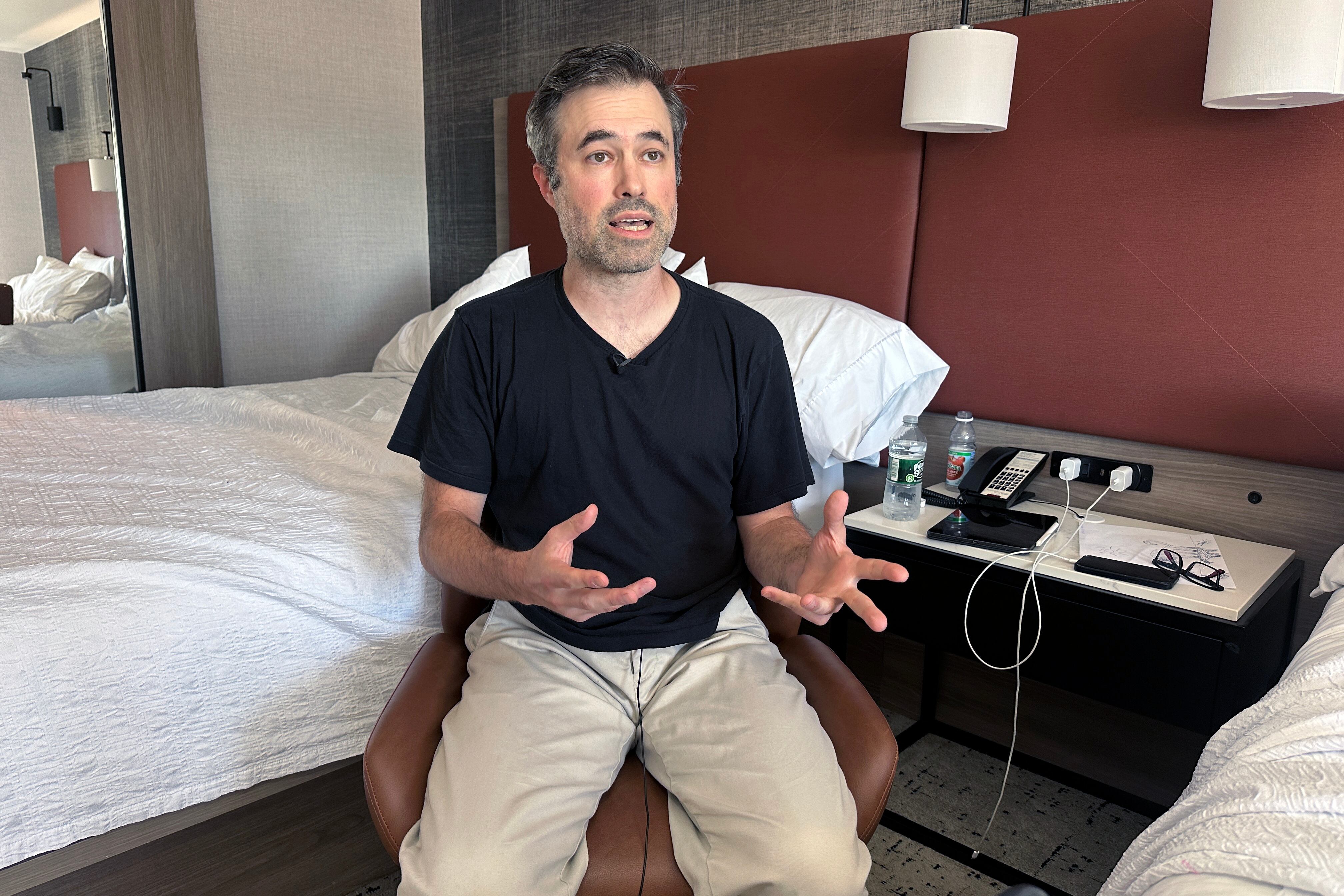Mark Bray, a history professor at Rutgers University (in the State of New Jersey) and an expert on anti-fascist movements, has left the United States and taken refuge in Spain with his family after receiving death threats and being the subject of a campaign of harassment by conservative groups. The situation arose after Bray was identified as an active member of Antifa, a far-left group that Donald Trump has declared “terrorist.” Although the academic has clarified that he does not belong nor has he belonged to any organization of this type, his work as an anti-fascism researcher has made him a target of attacks.
Bray, who is already in Madrid, has declined to make statements to this newspaper, but explained to the AP agency: “I have received many attacks online instigated conservative groups. My address and information about me has been leaked on social networks. “I was afraid for myself and my family if I stayed in the United States,” he explained in an interview in which he also points out that at first he could not travel to Spain because his reservation appeared as canceled in the digital air system.
Bray is the author of Antifa: The Anti-Fascist Handbook (2017), a work that explores the history and strategies of anti-fascist movements around the world. Since 2019, he has taught subjects on anti-fascism, terrorism, communism and human rights at Rutgers. However, his academic work has been interpreted by conservative sectors as a form of violent activism. The controversy grew after President Donald Trump signed an executive order that designated Antifa as a regional terrorist organization: from that moment on, several figures on the American right—including the influencer Jack Posobiec and members of Turning Point USA (TPUSA)—began spreading his name, accusing him of promoting dangerous ideologies and “funding” extremist groups.
Threats against Bray intensified after the murder of Turning Point USA founder Charlie Kirk. Although Bray had no relationship with the incident, his personal address was spread on social networks and he began receiving emails with threats, including one that promised to kill him in front of his students. Shortly after, TPUSA’s Rutgers affiliate launched a petition demanding his firing and encouraged users to “report” his presence on campus.
Faced with increasing harassment, Bray decided to move her classes to a virtual format and announced to her students that she was temporarily moving to Europe for safety reasons. For Bray, the Trump administration has tried to associate social protest and academic work with extremism, fueling a narrative that demonizes dissent. “This is an example of how they try to confuse protest with terrorism and academic research with extremism,” he told AP.
The professor is no stranger to controversy: in 2017, when he was a professor at Dartmouth College, he defended in an interview the idea that violence could be a legitimate form of self-defense against attacks by neo-Nazi or white supremacist groups. His statements earned him criticism even from his own university. For now, Rutgers University has simply stated that it does not comment on personnel or student discipline matters, and has reiterated its commitment to maintaining a safe environment for teaching and the exchange of ideas without fear of intimidation or harassment. In turn, TPUSA denied supporting violence or the practice of doxing —the publication of personal information without consent—although it maintains a position that teachers must be held accountable if they promote “radical” ideologies in the classroom.

